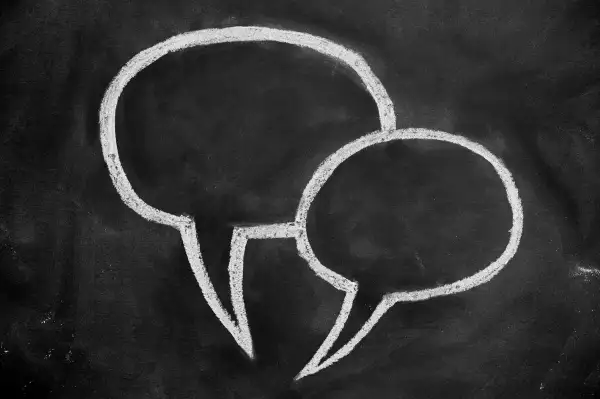The Money Staff Reveals Which Skills Helped Us the Most

Beyond the basic expertise you need to succeed in your job, what is the most important skill you could add to your repertoire to advance your career—that is, to get a raise, nab a promotion, or derive greater satisfaction from your work? That is the question we aim to answer in "The 21 Most Valuable Career Skills."
Putting this package together prompted the Money staff to think about which job skills have been—or would be—most helpful to us. Not surprisingly, many of our answers underscore our findings. Becoming more tech savvy was a consistent theme, for example, from mastering computer code to statistical analysis and data mining.
To see full coverage of Money's Best Career Skills 2016, click here.
What Money staffers say has helped so far…
“Systems troubleshooting. I think I’ve been helped by being able to look at an operation and see where the bottlenecks and stress points are. That’s helpful from a practical level and also makes me more valuable to my managers." — Rachel Elson, assistant managing editor
“The skill I think that's helped my career the most is adaptability. It's essential to always be learning, to always think of yourself as never quite done, to consider yourself and your career in permanent beta mode. Our business, like many others, is changing all the time, so you have to be able to adapt.” — Brad Tuttle, senior writer
“Networking! You can go to a great school and have skills that are useful to your field, but that doesn’t mean you’ll be able to beat out other, similarly credentialed applicants. It might seem like a nebulous skill, but if you’re talking to the right people at the right time, you can end up almost anywhere.” — Alexandra Mondalek, digital producer
“Critical thinking. Considering an issue or news topic from different angles and perspectives helps breed new ideas and solutions to problems. This includes thinking critically about what you’re doing to contribute and what else you have to offer.” — Alicia Adamczyk, reporter
"I think the skills that have gotten me this far are to be attentive, flexible, and always put in my best effort. At my first magazine internship, I listened and watched all the pros on staff and copied what worked. Being flexible is also important because our job duties are constantly evolving. Of course putting in the best effort seems to be obvious, but I know that always doing the best I can leaves me with no regrets." — Shayla Hunter, deputy director of photography
"My most valuable added skill, I think, is my entrepreneurialism, which lets me think up new business ideas that help the bottom line, even though that's not in my job description." — Diane Harris, editor
"Learning things really quickly. People think this is not a skill, but that’s ridiculous. The way you learn it is to indulge your curiosities. I took advantage of all the ways to learn random things—how to build a bicycle, how to weld, how to jump start a car, how to tango, and lots more. When you do this, you get used to learning, so the next thing is always easier." — Ethan Wolff-Mann, reporter
"Being tech savvy. I got my first NYC journalism job because I understood the internet and personal computers when not a lot of journalists did. Without that skill, it would have been tough to break in." — Anita Hamilton, syndication editor
"Mine is less a 'skill' and more an attitude. When you go into a job, don't assume you know more than your bosses. Listen. Be ambitious, but humble." — Taylor Tepper, writer
…And what else we want to learn
“The one new skill would be learning more about data science and/or statistics. (It barely edges out coding/web design skills.) There’s so much emphasis on data reporting now, and I read so many studies — sometimes ones that make conflicting claims — that I think it’d be really helpful to speak the language of the researchers more fluently.” — Kaitlin Mulhere, writer
"Salesmanship. As a journalist, it's my job to be skeptical and suspicious about almost any claim of success. But sometimes you need to sell other people on your dreams — everything from a story idea to a business venture — and believe in those dreams yourself." — George Mannes, senior editor
"I wish I was better at accounting and financial stuff, whether it was so I could do my own taxes or be prepared to handle an art budget at my job, or to better understand and help the finances of the non-profit organization I work with." — Leah Bailey, deputy art director
"Computer programming and art/design skills, whether that means simply being more artistically minded or learning programs like PhotoShop. As the journalism world seems to be headed in a more data-driven/infographic-focused direction, and it would be nice to be able to approach story ideas and presentation from a more informed visual perspective." — Kerry Close, reporter
"Embracing social media. I’m sure I’d learn a lot more if I could be bothered with everyone else’s feed but I really can’t be bothered." — Marc Peyser, editor at large
"As far as new skills I'd like to learn, there's a long list, that includes coding and web design." — Penelope Wang, editor at large
"I would really like to get better at Excel and Powerpoint. I’ve taken classes but have never become fluent. Excel would help me organize and crunch data, and Power Point would enable me to organize my thoughts succinctly, illustrate them, and present them." — Deborah Caldwell, editor, new strategic initiatives
"Acting. I often wish I had the ability to better control my voice, movements, etc., and also be able to 'inhabit' another character for a while. I think in business it’s very helpful to put yourself in another person’s shoes and see an issue from a different point of view." — Maria Carmicino, copy editor